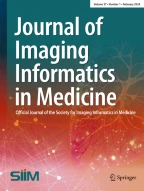Abstract
The adoption of social media technologies appears to enhance clinical outcomes through improved communications as reported by Bacigalupe (Fam Syst Heal 29(1):1-14, 2011). The ability of providers to more effectively, directly, and rapidly communicate among themselves as well as with patients should strengthen collaboration and treatment as reported by Bacigalupe (Fam Syst Heal 29(1):1-14, 2011). This paper is a case study in one organization's development of an internally designed and developed social technology solution termed “Unite.” The Unite system combines social technologies' features including push notifications, messaging, community groups, and user lists with clinical workflow and applications to construct dynamic provider networks, simplify communications, and facilitate clinical workflow optimization. Modeling Unite as a social technology may ease adoption barriers. Developing a social network that is integrated with healthcare information systems in the clinical space opens the doors to capturing and studying the way in which providers communicate. The Unite system appears to have the potential to breaking down existing communication paradigms. With Unite, a rich set of usage data tied to clinical events may unravel alternative networks that can be leveraged to advance patient care.
Similar content being viewed by others
References
Bacigalupe G: Is there a role for social technologies in collaborative healthcare? Fam Syst Heal 29(1):1–14, 2011
Coiera E: When conversation is better than computation. J Am Med Informatics Assoc JAMIA 7(3):277–86, 2000
McNab C: What social media offers to health professionals and citizens. Bull World Health Organ 87(8):566, 2009
Nambisan P, Kreps GL, Polit S: Understanding Electronic Medical Record Adoption in the United States: Communication and Sociocultural Perspectives. Interact J Med Res [Internet]. 2013 Mar 26 [cited 2013 Sep 10];2(1). Available from: http://www.ncbi.nlm.nih.gov/pmc/articles/PMC3628120/
Rimal RN, Lapinski MK: Why health communication is important in public health. Bull World Health Organ 87(4):247, 2009
Wall, I, Robinson L: Left in the dark: The unmet need for information in humanitarian responses [Internet]. London: BBC World Service Trust; 2008 [cited 2012 Aug 6]. Available from: http://downloads.bbc.co.uk/worldservice/trust/pdf/humanitarian_response_briefing.pdf
Wu SJ, Raghupathi W: A panel analysis of the strategic association between information and communication technology and public health delivery. J Med Internet Res [Internet]. 2012 Oct 22 [cited 2013 Sep 10];14(5). Available from: http://www.ncbi.nlm.nih.gov/pmc/articles/PMC3510718/
Coiera E: Clinical communication: a new informatics paradigm. Proc AMIA Annu Fall Symp. 17–21, 1996
Nace L: How much is outdated technology costing you? ExecutiveInsight 4(7):8, 2013
Myers L: Advancing patient-centered care through health IT. ExecutiveInsight 4(7):36–8, 2013
Covell D, Uman G, Manning P: Information needs in office practice: are they being met? Ann Intern Med. 103:596–9, 1985
Tang PC, Jaworski MA, Fellencer CA, Kreider N, LaRosa MP, Marquardt WC: Clinician information activities in diverse ambulatory care practices. Proc AMIA Annu Fall Symp 12–6, 1996
Sanfran C, Sands D, Rind D: Online medical records: a decade of experience. Methods Inf Med. 38:308–12, 1999
Boyd DM, Ellison NB: Social network sites: definition, history, and scholarship. J Comput-Mediat Commun 13(1):210–30, 2007
Liu H, Maes P, Davenport G: Unraveling the taste fabric of social networks. Sel Readings Hum Side Inf Technol. Idea Group Inc (IGI); 2009
Haythornthwaite C: Social networks and Internet connectivity effects. Inf Commun Soc 8(2):125–47, 2005
Hawn C: Take two aspirin and tweet me in the morning: how Twitter, Facebook, and other Social Media are reshaping health care. Health Aff (Millwood). 28(2):361–8, 2009
Hogan B: Analyzing Social Networks via the Internet. SAGE Handb Online Res Methods [Internet]. SAGE Publications Ltd; 2008 [cited 2012 Aug 6]. Available from: http://srmo.sagepub.com/view/the-sage-handbook-of-online-research-methods/n8.xml
Backstrom L, Huttenlocher D, Kleinberg J, Lan X: Group formation in large social networks: membership, growth, and evolution. Proc 12th ACM SIGKDD Int Conf Knowl Discov Data Min [Internet]. New York, NY, USA: ACM; 2006 [cited 2012 Aug 6]. p. 44–54. Available from: http://doi.acm.org/10.1145/1150402.1150412
Reason J: Human error. Cambridge University Press; 1990
Baddeley A: Working memory. Science 255(5044):556–9, 1992
Reitman JS: Without surreptitious rehearsal, information in short-term memory decay. J Verbal Learn Verbal Behav 13(4):365–77, 1974
Coiera E, Tombs V: Communication behaviours in a hospital setting: an observational study. BMJ 316(7132):673–6, 1998
Author information
Authors and Affiliations
Corresponding author
Rights and permissions
About this article
Cite this article
Kolowitz, B.J., Lauro, G.R., Venturella, J. et al. Clinical Social Networking—A New Revolution in Provider Communication and Delivery of Clinical Information across Providers of Care?. J Digit Imaging 27, 192–199 (2014). https://doi.org/10.1007/s10278-013-9653-0
Published:
Issue Date:
DOI: https://doi.org/10.1007/s10278-013-9653-0
